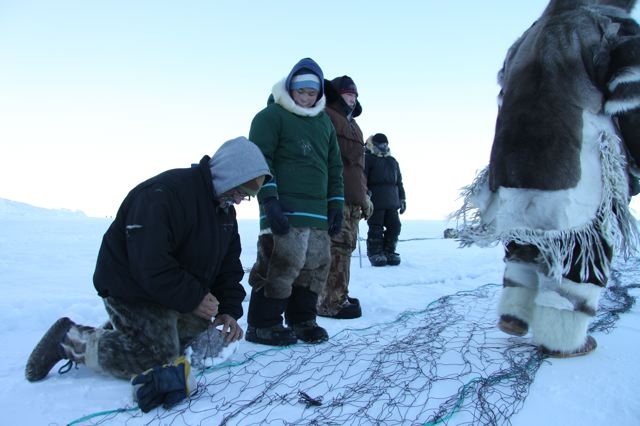Updated: Canadian Inuit blast ruling on continued EU seal ban as ‘morally reprehensible’

The leader of Canada’s national Inuit organization, Inuit Tapiriit Kanatami (ITK), denounced Thursday’s WTO ruling upholding an EU ban on Canadian seal products.
“I am morally outraged at the self-righteousness and sanctimoniousness of the EU’s claim to protect the morals of its citizens,” said ITK president Terry Audla in a news release.

“Inuit live according to the principles of fairness and compassion and we seek nothing more than to feed our families and make an honest living in the modern economy. It is morally reprehensible for anyone to impede those goals – which are the basic rights of any citizen of the world.”
A World Trade Organization panel ruled in November 2013 that while the EU seal ban did undermine fair trade, it could be justified moral grounds for animal welfare.
In January 2014, Norway and Canada appealed.
‘Based on politics not science’
Although the WTO’s Appellate Body overturned some aspects of the 2013 ruling on Thursday, it upheld the panel’s general finding that the “EU Seal Regime” is “necessary to protect public morals.”

A statement from the Canadian government on behalf of Ed Fast, Minister of International Trade, Gail Shea, Minister of Fisheries and Oceans, and Leona Aglukkaq, Minister of the Environment, Minister of the Canadian Northern Economic Development Agency and Minister for the Arctic Council, said the decision confirms that the EU decision was a political one with “no basis in fact or science.”
“Today’s decision by the WTO Appellate Body confirms what we have said all along, namely that the EU’s seal regime is arbitrarily and unjustifiably applied and is therefore inconsistent with the EU’s obligations,” the statement said.
“The WTO Appellate Body confirmed that the EU measure violates its international obligations and has ordered the EU to bring itself into compliance. We are currently reviewing the practical impact of the decision on the Atlantic and northern seal harvests.”
Wildlife advocates praise ruling
Earlier in the day, animal rights groups praised the decision.
“This decision confirms that global markets for products of commercial seal hunts are closed and commercial sealing has no future,” said the Humane Society International/Canada, an animal protection organization, in a statement on Thursday.
“It is time the Canadian government stops wasting taxpayers dollars on a futile battle to preserve this cruel and outdated slaughter.”
Ban’s effect on Arctic indigenous peoples
The European Parliament passed the bill to ban the importation of seal products in 2009 after a campaign by animal welfare activists against the commercial seal hunt.
Though indigenous people in the Arctic are exempt from the ban, the law has effectively killed the market for seal products.
This has had a major economic and social impact for Inuit, Sami and other Arctic indigenous communities.
In a 2012 Eye on the Arctic interview, Leif Fontaine, the president of Greenland’s Association of Fishers and Hunters, said the destruction of the sealskin market threatened “seriously our identity and existence of Greenland’s 60 small settlements.”
And in an interview with Radio Sweden, Sámi handicraft seamstress Lise Tapio Pittja highlighted the despair the ban had caused indigenous people throughout the Arctic.
“People think it is not possible to get hold of sealskin clothes or other seal products now,” she said. “People in general now feel that the ban prevents one placing an order.”
“I understand that animals must not be tortured or even hurt, and must live free and happy lives. But I would like to invite vegans to take part in a working day at minus 37 degrees, in clothes not made of skins or fur. They would not survive very long.”
Write to Eilís Quinn at eilis.quinn(at)cbc.ca
Related stories from around the Arctic:
Canada: Seal ban omitted from Canada-EU trade talks, CBC News
Greenland: What the EU seal ban has meant for Inuit communities in the Arctic, Eye on the Arctic
Sweden: European sealskin ban affects Sámi handicraft workers, Radio Sweden




Pingback: Former Canadian police officer headed to jail for smuggling narwhal tusks to U.S. – Eye on the Arctic